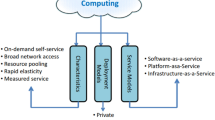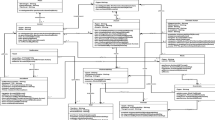Abstract
Social networks are constantly expanding and attracting more and more users. The users of these networks share plenty of information with their friends, many of which are confidential and private. In this regard, maintaining the security and privacy of users is a major requirement in social networks. Although the traditional access control can help users keep their privacy by applying initial access levels, they are not effective for social networks, considering the dynamic nature of them. Therefore, in this paper, a novel trust-based access control approach has been presented for social network using fuzzy system. The proposed method, SNFTrust, is a combination of trust-based access control and fuzzy inference system which consists of three modules: the user module, the fuzzy trust module, and the access control module. In user module, the user request is analyzed to identify the type of relationships, and the property matrix is created based on user’s activity in social network. In fuzzy trust module, two fuzzy systems are combined to calculate the trust score and to specify the access right. Finally, the access control module enables access to the user account. The proposed approach was implemented using the dataset of a real microblog that attracted over 540 million users on the time we accessed the dataset. The results of experiments indicate that the amount of accuracy is 0.96 and the proposed method has the required flexibility, scalability and accuracy, which can be suitable to apply in various social networks.








Similar content being viewed by others
References
Ahmad, A., Whitworth, B.: Access control taxonomy for social networks. 7th International Conference on Information Assurance and Security (IAS), pp. 256–261, (2011)
Chen, S., Wang, G., Jia, W.: κ-FuzzyTrust: efficient trust computation for large-scale mobile social networks using a fuzzy implicit social graph. Inf. Sci. 318, 123–143 (2015)
Cheng, Y., Park, J., Sandhu, R.: Relationship-based access control for online social networks: beyond user-to-user relationships. Privacy, security, risk and trust (PASSAT). International Conference on Social Computing (SocialCom). 646–655 (2012)
Cheng, X., Fu, S., de Vreede, G.-J.: Understanding trust influencing factors in social media communication: a qualitative study. Int. J. Inf. Manag. 37(2), 25–35 (2017)
Fire, M., Goldschmidt, R., Elovici, Y.: Online social networks: threats and solutions. IEEE Communications Surveys & Tutorials. 16(4), 2019–2036 (2014)
Folorunso, O., Mustapha, O.A.: A fuzzy expert system to trust-based access control in crowdsourcing environments. App. Com. Inf. 11(2), 116–129 (2015)
Hao, F., Min, G., Lin, M., Luo, C., Yang, L.T.: MobiFuzzyTrust: an efficient fuzzy trust inference mechanism in mobile social networks. IEEE Transactions on Parallel and Distributed Systems. 25(11), 2944–2955 (2014)
Kizza, J.M.: Ethical, Privacy, and Security Issues in the Online Social Network Ecosystems. Ethics in Computing, Springer, pp. 227–253, (2016)
Lang, B.: Trust degree based access control for social networks. Proceedings of the International Conference on Security and Cryptography (SECRYPT). 1–6 (2010)
Lee, K.H.: First course on fuzzy theory and applications, Springer Science & Business Media, vol. 27, (2006)
Li, J., Zhang, Z., Zhang, W.: Mobitrust: trust management system in mobile social computing. IEEE 10th International Conference on Computer and Information Technology (CIT), pp.954–959, (2010)
Li, M., Sun, X., Wang, H., Zhang, Y., Zhang, J.: Privacy-aware access control with trust management in web service. World Wide Web. 14(4), 407–430 (2011)
Liu, G., Liu, Y., Liu, A., Li, Z., Zheng, K., Wang, Y., Zhou, X.: Context-aware trust network extraction in large-scale trust-oriented social networks. World Wide Web. 21(3), 713–738 (2018)
Ma, S., He, J., Shuai, X.: An access control method based on scenario trust. Int. J. of Com. Int. Sys. 5(5), 942–952 (2012)
Mahalle, P.N., Thakre, P.A., Prasad, N.R., Prasad, R.: A fuzzy approach to trust based access control in internet of things. 3rd international conference on wireless communications, vehicular technology, Information Theory and Aerospace & Electronic Systems (VITAE), pp. 1–5, (2013)
Maqsood, T., Khalid, O., Irfan, R., Madani, S.A., Khan, S.U.: Scalability issues in online social networks.ACM Com. Sur. (CSUR) 49(2), No.40, (2016)
Nepal, S., Sherchan, W., Paris, C.: Strust: a trust model for social networks. IEEE 10th international conference on trust, Security and Privacy in Computing and Communications (TrustCom), pp.841–846, (2011)
Niu, Y., Wang, Y., Sun, G., Yue, A., Dalessandro, B., Perlich, C., Hamner, B.: The Tencent Dataset and KDD-Cup’12. KDD-Cup Workshop. https://www.kaggle.com/c/kddcup2012-track1/data (2018). Accessed Nov 2018
Raad, E., Chbeir, R.: Privacy in online social networks. Security and Privacy Preserving in Social Networks. Springer, pp. 3–45, (2013)
Rathore, N.C., Tripathy, S.: A trust-based collaborative access control model with policy aggregation for online social networks. Soc. Net. Ana. Min. 7(1), 7 (2017)
Rathore, S., Sharma, P.K., Loia, V., Jeong, Y.-S., Park, J.H.: Social network security: issues, challenges, threats, and solutions. Inf. Sci. 421, 43–69 (2017)
Richthammer, C., Netter, M., Riesner, M., Sänger, J., Pernul, G.: Taxonomy of social network data types. EURASIP J. on Inf. Sec. 11, 1–17 (2014)
Ruan, Y., Durresi, A.: A survey of trust management systems for online social communities–trust modeling, trust inference and attacks. Knowl.-Based Syst. 106, 150–163 (2016)
Sayaf, R., Clarke, D.: Access control models for online social networks. Social Network Engineering for Secure Web Data and Services. IGI Global 32–65 (2014)
Shehab, M., Cheek, G., Touati, H., Squicciarini, A.C., Cheng, P.-C.: Learning based access control in online social networks. Proceedings of the 19th international conference on World wide Web, pp.1179–1180, (2010)
Shekarpour, S., Katebi, S.: Modeling and evaluation of trust with an extension in semantic web. Web Semant. Sci. Serv. Agents World Wide Web. 8(1), 26–36 (2010)
Sherchan, W., Nepal, S., Paris, C.: A survey of trust in social networks. ACM Computing Surveys (CSUR). 45(4), 47 (2013)
Singh, S., Sidhu, J.: An approach for determining trustworthiness of individuals in a web-based social network. Arab. J. Sci. Eng. (Springer Science & Business Media BV). 41(2), 461–477 (2016)
Stachowiak, A.: Uncertainty-preserving trust prediction in social networks. Social Networks: A Framework of Computational Intelligence, Springer, pp. 99–122, (2014)
Su, R., Zhang, Y., Fan, J., Wang, Y.: Application of fuzzy neural network in the trust-based access control model. 8th World Congress on Intelligent Control and Automation (WCICA), pp.1273–1276, (2010)
Sun, X., Wang, H., Li, J., Zhang, Y.: Injecting purpose and trust into data anonymisation. Computers & Security. 30(5), 332–345 (2011)
Takalkar, V., Mahalle, P.N.: Trust-based access control in multi-role environment of online social networks. Wirel. Pers. Commun. 100(2), 391–399 (2018)
Wang, H., Cao, J., Zhang, Y.: A flexible payment scheme and its role-based access control. IEEE Trans. Knowl. Data Eng. 17(3), 425–436 (2005)
Wang, H., Zhang, Y., Cao, J.: Effective collaboration with information sharing in virtual universities. IEEE Trans. Knowl. Data Eng. 21(6), 840–853 (2009)
Wang, Y., Zhai, E., Lua, E.K., Hu, J., Chen, Z.: isac: intimacy based access control for social network sites. In: Ubiquitous Intelligence & Computing and 9th International Conference on Autonomic & Trusted Computing (UIC/ATC), pp. 517–524, (2012)
Yager, R.R., Zadeh, L.A.: An Introduction to Fuzzy Logic Applications in Intelligent Systems. Springer US, (1992)
Yin, G., Jiang, F., Cheng, S., Li, X., He, X.: Autrust: a practical trust measurement for adjacent users in social networks. Second International Conference on Cloud and Green Computing (CGC), pp.360–367, (2012)
Zhan, J., Fang, X.: A novel trust computing system for social networks. Privacy, security, Risk and Trust (PASSAT) and IEEE Third Inernational Conference on Social Computing (SocialCom), pp. 1284–1289, (2011)
Zhang, J., Tao, X., Wang, H.: Outlier detection from large distributed databases. World Wide Web. 17(4), 539–568 (2014)
Zhao, K., Pan, L.: A machine learning based trust evaluation framework for online social networks. IEEE 13th international conference on trust, Security and Privacy in Computing and Communications (TrustCom), pp. 69–74, (2014)
Zhao, B., Xiao, C., Zhang, Y., Zhai, P., Wang, Z.: Assessment of recommendation trust for access control in open networks. Clust. Comput. 1–7 (2018)
Author information
Authors and Affiliations
Corresponding author
Additional information
Publisher’s note
Springer Nature remains neutral with regard to jurisdictional claims in published maps and institutional affiliations.
Rights and permissions
About this article
Cite this article
Vahabli, S., Ravanmehr, R. A novel trust-based access control for social networks using fuzzy systems. World Wide Web 22, 2241–2265 (2019). https://doi.org/10.1007/s11280-019-00668-y
Received:
Revised:
Accepted:
Published:
Issue Date:
DOI: https://doi.org/10.1007/s11280-019-00668-y




